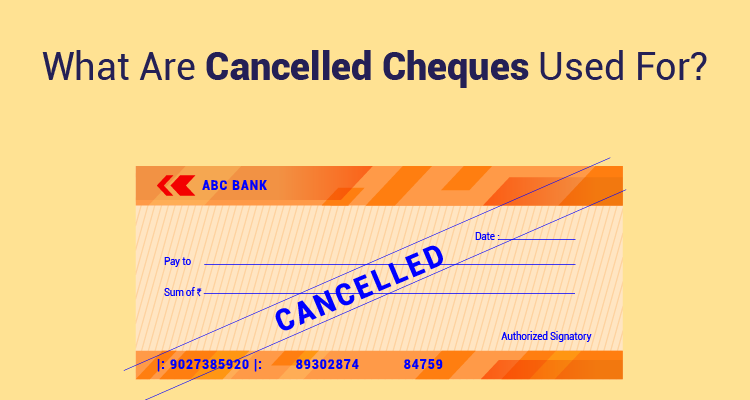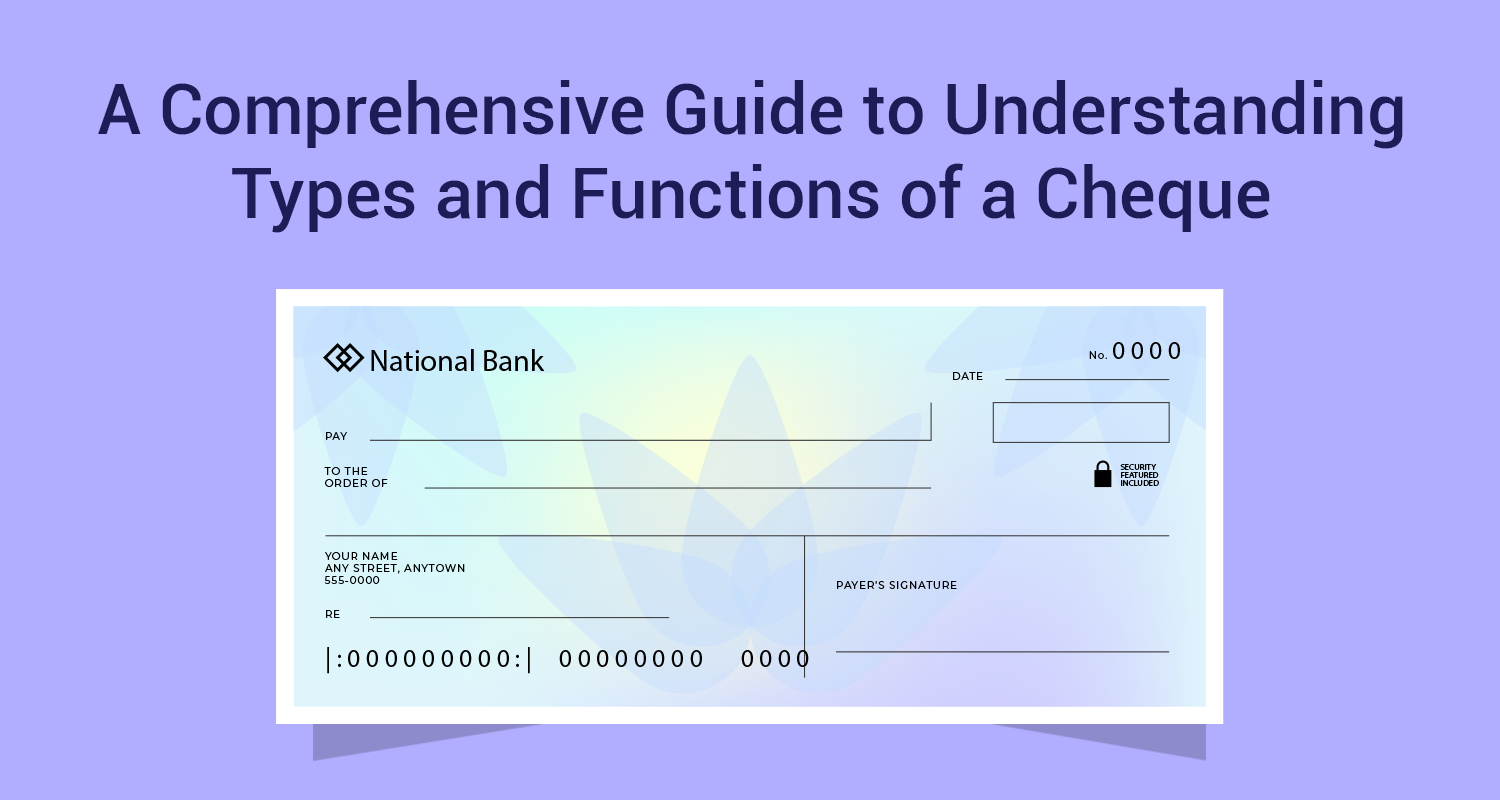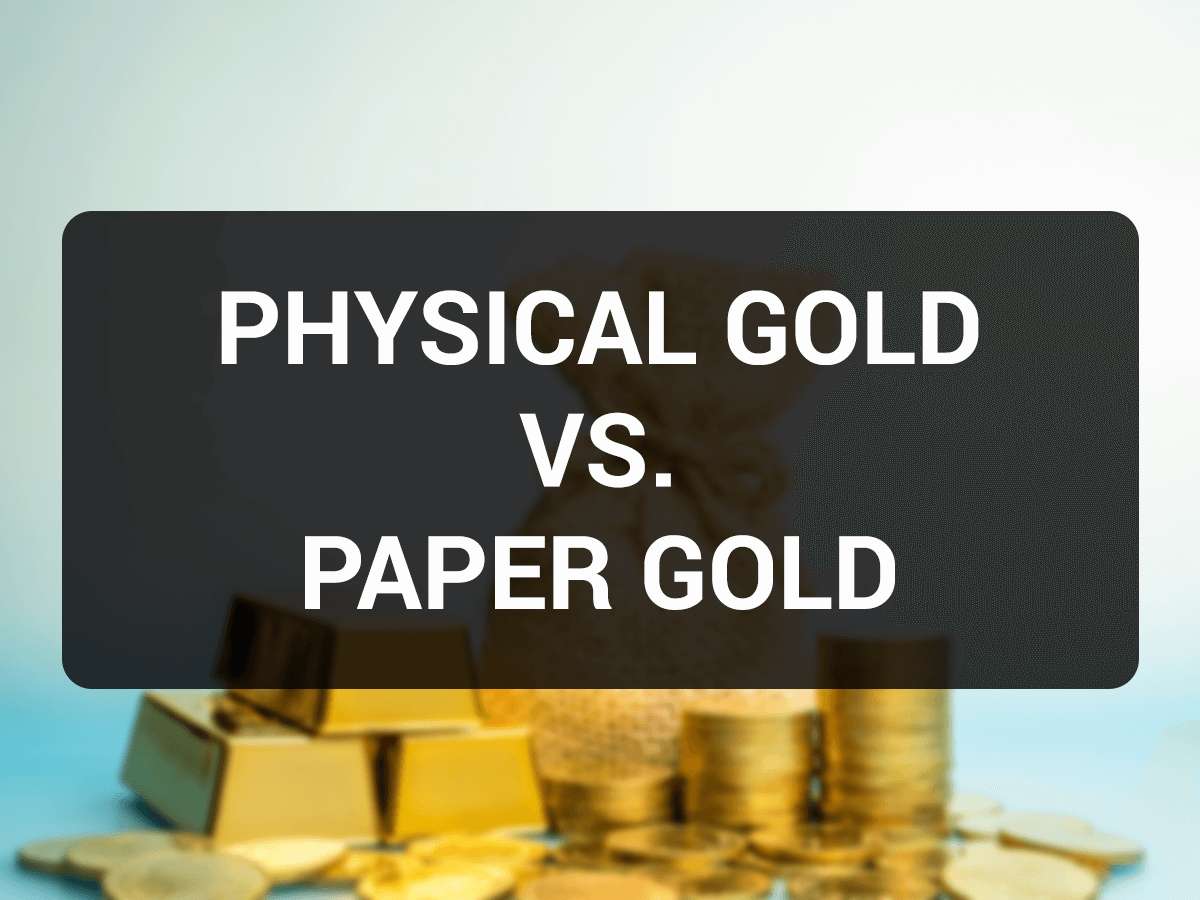Cancelled Cheque: What Are They and How to Use Them
Table of Contents
What Is A Cheque?
A cancelled cheque is a cheque that has ‘CANCELLED’ written in caps on it between two parallel lines drawn across the cheque. It generally serves as validation of the account holder’s information such as IFSC, MICR, account number, bank branch details and the account holder’s name. This helps prevent withdrawing funds, although there is a possibility that it may fall in wrong hands and be misused.
How to Cancel a Cheque
Cancelling a cheque is very simple. Follow these steps to cancel a cheque:
- Take a leaf from your cheque book.
- Use a blue/black pen and draw two parallel lines across the cheque.
- As you draw the lines, ensure you do not cancel or overlap IFSC, MICR, account holder’s name, bank name and branch or any other detail.
- DO NOT fill in other details such as, name, amount or date.
- DO NOT put your signature.
- Write ‘CANCELLED’ in between the parallel lines.
How To Give Cancelled Cheque
When a bank account holder decides to issue a cancelled cheque, he can submit the cheque in either of the following ways:-By visiting the bank branch and submitting the physical cheque to the bank.
-By using Phone Banking service from the bank’s app.
-By using the Net Banking service of the bank where they have an account.
What Does A Cancelled Cheque Denote?
A cancelled cheque deters a person, including the account holder, from using the cheque to withdraw or pay money.
A cancelled cheque denotes or validates a customer’s bank details, MICR/IFSC codes, name and branch details when making a demat account; investing in mutual funds or buying an insurance; when making EMI payments; opting for the ECS mode of payment; KYC completion and EPF withdrawal.
It serves as proof that the person has a bank account.
When is a Cancelled Cheque Required?
A bank cancelled cheque is required for the following purposes:
- When you want to open a demat account for investing in stocks, mutual funds or when taking insurance.
- When you want to withdraw money from your EPF account.
- When you are opting for the Electronic Clearance Service of your bank to transfer money from your account to another account.
- When opting for an EMI-based payment option for a high-value purchase.
- To complete KYC completion norms.
Sapna aapka. Business Loan Humara.
Apply Now
Difference Between Cancelled Cheque and Stop Payment
Just like a cancelled cheque does not allow anyone, including the issuer of the cancelled cheque to make any transactions, a Stop Payment is also an instruction from the issuer to not process a payment.
The payment can be made either in cheque, draft or any other mode of payment. However there are some essential differences between a Cancelled Cheque and a Stop Payment.
| Stop Payment | Cancelled Cheque |
|---|---|
| The word ‘CANCELLED’ is not mentioned on the cheque. | The word ‘CANCELLED’ is mentioned on the cheque between two parallel lines drawn across the cheque. |
| A Stop Payment instruction is issued when there are insufficient funds; if the signed cheque is misplaced or if there is a suspicion of fraud or for any other reason. | Most often, a cancelled cheque is used as evidence of one’s existing bank account and their financial credibility. |
| A small fee may be charged for using the Stop Payment option. | The bank does not charge any fee for issuing a cancelled cheque. |
| A cheque for which a stop payment instruction has been issued will have all details of the issuer including the signature. | A cancelled cheque will have no details of the issuer and not even his signature. |
Frequently Asked Questions
When does one require a cancelled cheque?
A cancelled cheque is required when one wants to open a demat account; wants to withdraw from his EPF; is making a high-value purchase; for completing KYC norms; investing in an insurance policy/mutual funds and when opting for Electronic Clearance Service of your bank.
Is it possible for my bank to cancel my cheque?
It is the responsibility of the bank account holder to cancel a cheque. The bank will not do it on his behalf. If the bank account holder does not have a cheque, the bank will issue the customer a chequebook and they will have to cancel it and submit it to the bank. The bank will also not cancel your cheque in your absence.
Can I sign a cancelled cheque?
A cancelled cheque does not require any additional details as it is not used for any financial transaction.
What are the risks associated with cancelled cheques?
Cancelled cheques though cannot be used for withdrawing or sending money, they still have vital information such as the account holder’s name, bank name, IFSC code, and MICR code and hence there is a possibility of misuse by scammers. Hence, one has to be alert throughout the purpose for which the cancelled cheque is being used.
Can I cancel the cheque using red ink?
When writing cheques or filling in financial information in banks and financial institutions, always use black/blue pen unless otherwise specified.
Can I block a cheque leaf online?
Yes, you can opt for the Net Banking feature of your bank to block a cheque leaf online. You can also sign-in through the online banking app on your phone.
Get Gold Loan at the comfort of your home
Apply NowDisclaimer : The information in this blog is for general purposes only and may change without notice. It does not constitute legal, tax, or financial advice. Readers should seek professional guidance and make decisions at their own discretion. IIFL Finance is not liable for any reliance on this content. Read more




